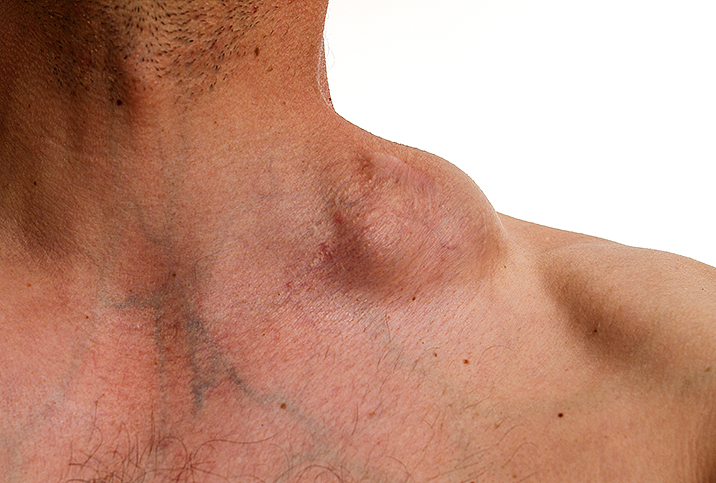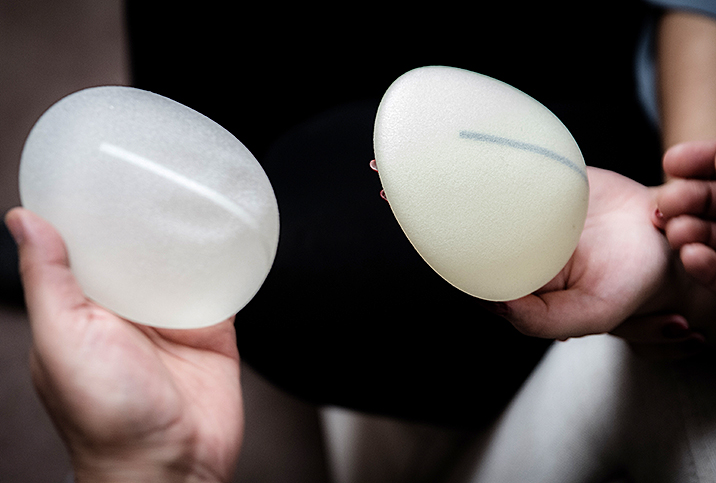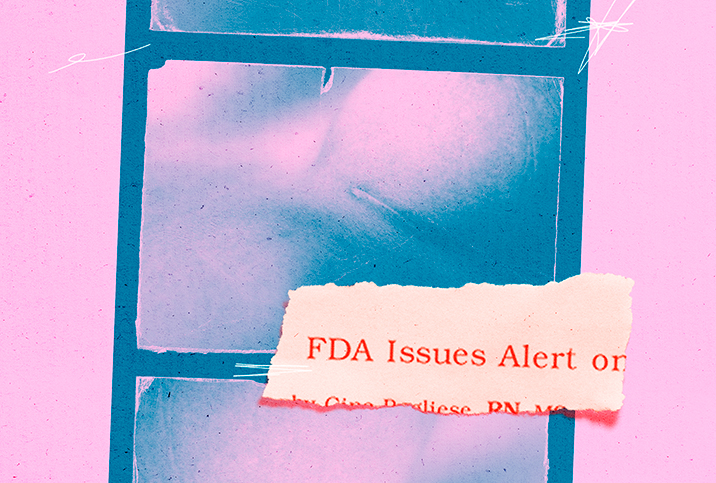Do Breast Implants Cause Cancer?

The incidence of lymphoma associated with breast implants is substantially higher than previous reports, according to a 2022 study in JAMA Oncology.
The study looked at anaplastic large-cell lymphoma (ALCL), a rare malignant condition representing 3 percent of all breast lymphomas. The study stated that the U.S. incidence rate of ALCL in females increased from 3.2 cases per 100 million people per year during 2000 to 2005 to 14.5 per 100 million during 2012 to 2018. This rate was higher than a previous estimate of 3 cases per 100 million by the Food and Drug Administration (FDA).
Due to the association of breast implants with lymphoma, the FDA mandated a black box warning in 2020 on all saline-and silicone gel-filled implants. Does this mean breast implants cause cancer?
What is known about ALCL?
ALCL is a rare type of non-Hodgkin lymphoma involving part of the immune system called T cells and was first associated with breast implants in 1997.
David Horowitz, M.D., a radiation oncologist in New York City and one of the authors of the study, explained, "It tends to follow a course that is not aggressive, frequently presenting as an effusion or fluid collection adjacent to the breast implant, but can form masses, invade into the breast tissue or spread to lymph nodes."
In most cases, removing the implant can cure the ALCL, but in some cases, death can occur.
"The tumor rarely spreads regionally or distantly beyond the implant capsule," said lead author Connor Kinslow, M.D., a radiation oncology resident at Columbia University Irving Medical Center in New York City.
However, it's important that women follow up with their surgeon if they notice new changes around the breast implant, such as enlargement or swelling of the breast, lumps in the breast or armpit, or pain.
Do breast implants cause cancer or is it a mixed bag of factors that lead to ALCL?
The cause of ALCL related to breast implants is thought to be dependent on a number of factors.
"The pathogenesis of ALCL is thought to be related to the interplay of certain types of bacterial infection, chronic inflammation at the interface of the breast tissue and the textured implant, and perhaps a genetic predisposition," Kinslow explained.
FDA warning label
The FDA first issued a safety warning about the association between breast implants and ALCL in 2011 after several case reports came out describing the risk. In 2020, the black box warning was issued. A black box warning is the strictest and most serious type of warning the FDA gives about a medication or medical product and is meant to draw attention to the product's serious or life-threatening side effects or risks.
The newest FDA actions were approved in October 2021 and follow the initial recommendations from the 2020 guidelines. The guidelines provide clinical data on the baseline characteristics and complications associated with saline and silicone breast implants. The guidelines also provide chemistry and toxicology data on the makeup of both types of implants.
In a press release issued in September 2022, the FDA warned about reports of squamous cell carcinoma and various other types of lymphomas associated with the scar tissue surrounding breast implants. While these risks are rare, they represent additional types of cancers to ALCL, which has already been reported for more than a decade as a risk of breast implants.
Adding to current knowledge
The new study adds to the current state of knowledge by recognizing that the incidence of ALCL is higher than the FDA's previous estimates.
"The incidence rate in the United States is increasing rapidly," Horowitz explained. "This may be due to improved recognition of the disease, but it is important to note that the use of textured breast implants has increased more than fivefold from 2011."
While breast implants might not directly cause cancer, patients should still be aware of the risks. Despite these risks, women should not be dissuaded from receiving breast implants if they choose.
"Though I would echo that I would not discourage women from pursuing implant-based reconstruction after mastectomy, and certainly women are not recommended to prophylactically remove their breast implants, it is important for government agencies to continue to survey the disease," Kinslow said.
For women considering breast implants, it's important to discuss risks with their breast surgeon. And women who already have breast implants should report any abnormal symptoms, such as pain, lumps or redness in the breast or armpit, to their surgeon right away. While the risk of ALCL associated with breast implants remains low, women should still be vigilant in keeping an eye on any physical changes after they receive breast implants.


















